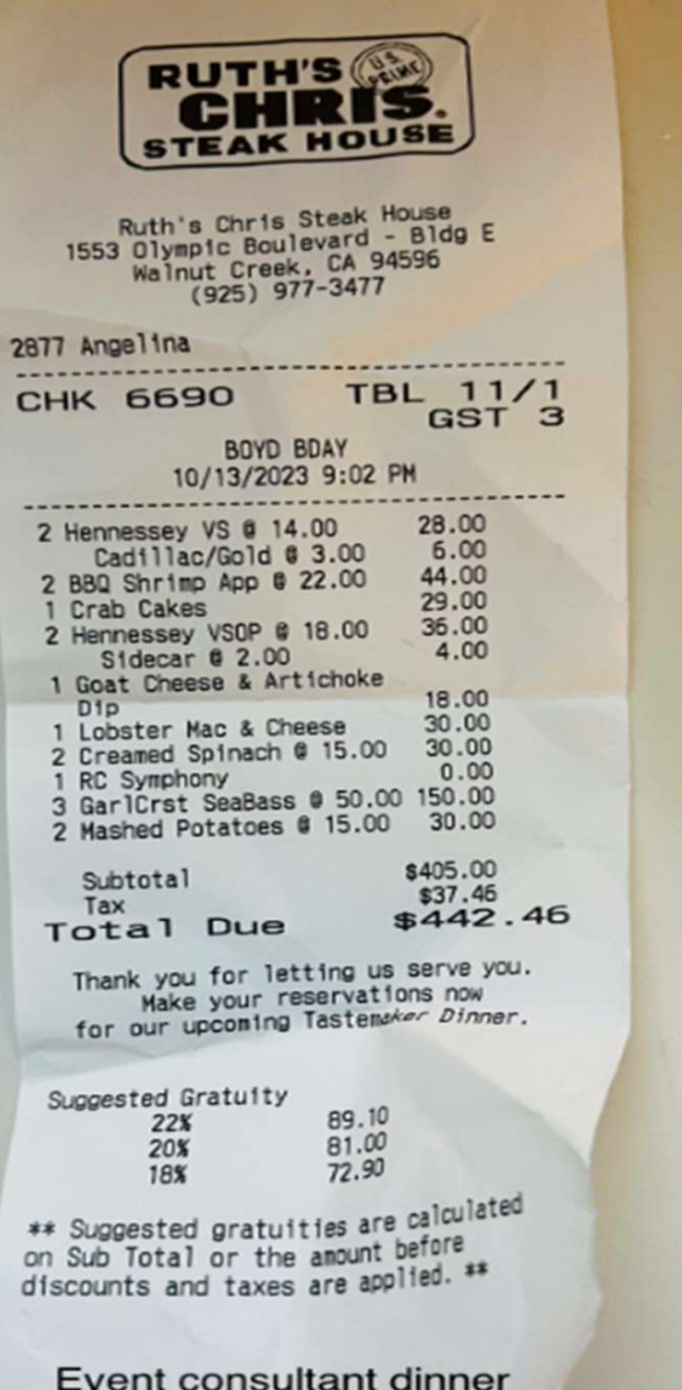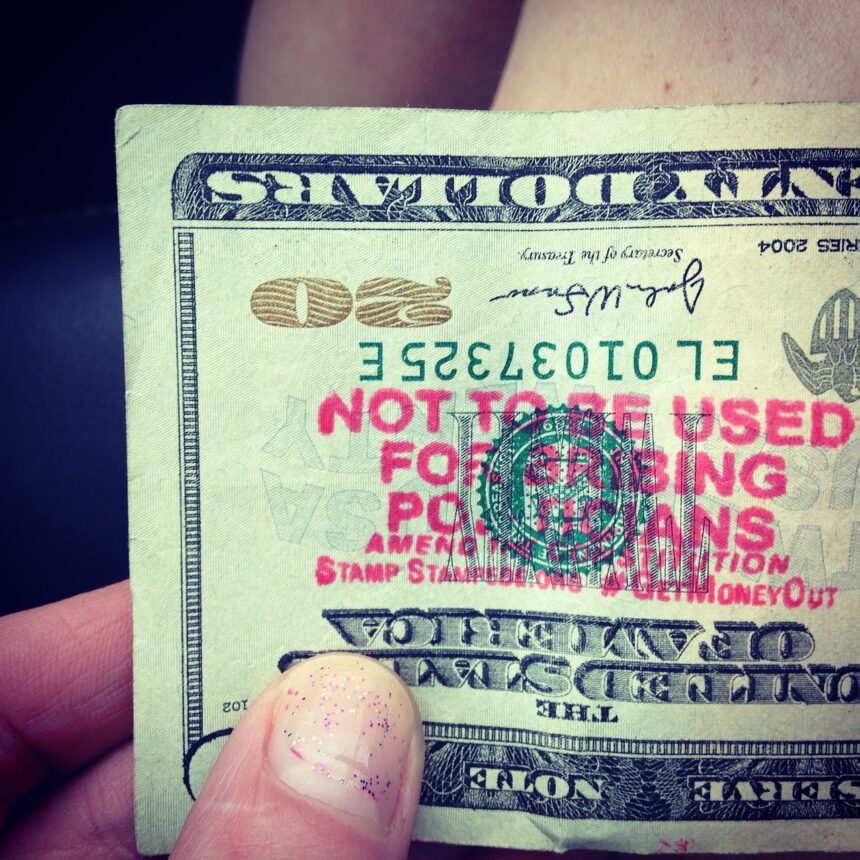I remember being a broke college student during my senior year at The College of William & Mary. A group of us gathered at the Spanish House, the language immersion dorm where we lived, to brainstorm easy ways to make money. None of us had job offers yet, and we were anxious to prove to ourselves—and to our parents—that we hadn’t wasted four years.
One classmate joked, “What if we started a nonprofit called ‘Save The Children’? Who wouldn’t want to save children? We could raise a ton of money from private donors and the government. And then pay ourselves a million dollars each as directors!”
We all chuckled at the first glimpse of grift we’d concocted. Francisco would be the CEO, Pravster would be the CMO, and I would be the CFO. All our financial problems would be solved! With no money, our minds naturally drifted toward dubious ways of getting some.
Little did I realize then that government grift was pervasive all around the country.
Goals Of This Post
- To explore government grift and understand why it persists
- To highlight the advantages of working for the government, given the bias toward private sector jobs
- To discuss the allure of power, money, and status, and why it can be dangerous if we don’t let go of them
- To show how people naturally tend to take care of those most similar to themselves
- To question whether the government borrowing more money, raising taxes, and expanding the budget is the best path forward
- To examine how incentives drive human behavior
What Is Government Grift?
Government grift refers to the unethical or corrupt misuse of public funds or resources by government officials or those connected to the government. It can take many forms, including embezzlement, bribery, nepotism, or diverting public resources for personal gain.
Essentially, government grift involves exploiting one’s position in government for financial or material benefit, often at the expense of taxpayers or public interest. Grift not only erodes trust in public institutions, but it also leads to inefficiency, waste, and increased inequality.
The combination of large local budgets and concentrated power creates an irresistible temptation for financial gain.
As a personal finance writer, I understand why financial misconduct occurs—especially among politicians who didn’t grow up with wealth. Once in power, the temptation to leverage that influence for personal gain can be overwhelming. When surrounded by wealthy individuals living extravagant lifestyles, it’s easy to start feeling entitled to the same. With power comes the desire to also take care of those closest to you.
Bi-coastal grift: I invite you to share examples of grift within your local government in the comment section below so we can get a clearer picture of how widespread it is. My friends on the East Coast have NYC Mayor Eric Adams as a prime example of grift after his indictment on five federal public corruption charges.
First Experience with Government Grift in San Francisco, California
In 2005, I embarked on my first major home remodel by converting an upstairs closet into a full bathroom. The home I had just purchased only had one full bath and one quarter bath. Adding another full bath to better utilize the space was a no brainer. To make the remodel official, I chose to do everything to code with the proper city permits.
Hector, the general contractor recommended by my real estate agent, informed me that I needed to come up with $3,200 to pay a permit expediter. According to him, this was the only way to get my bathroom permit approved within the next six months. Not knowing any better, I paid the $3,200.
Sure enough, the permit was approved, and the job was completed in about three months. The very next year, however, I read in the San Francisco Chronicle that the permit expediter I paid had been sent to jail for accepting bribes! Holy crap—was my $3,200 actually a bribe?
It turns out that paying permit expediters was legal in San Francisco. However, this particular expediter had been pocketing extra money off the books. Private citizens had to pay extra to local government officials just to get their home updates done. And in turn, these instances drive up the cost of housing for everyone.
Once I realized this type of grift was occurring, ironically, I became more bullish on the San Francisco real estate market. I figured, the more corruption there is at the Department of Building inspection, the more expensive and difficult it is to build houses and expand. Therefore, home prices should continue to go up! And up they inevitably did.
Government Grift Under Mayor London Breed
Over the years, I’ve come to realize the true power of local politicians—especially mayors. The vast majority of government employees are honest, hard-working people. There are some 34,000 San Francisco government employees. But the higher people climb in the ranks, the more power they gain. And with power comes temptation.
London Breed became the mayor of San Francisco in July 2018 after the sudden passing of Mayor Ed Lee. In 2023, she was the highest-paid mayor in all of California, earning a total compensation of $468,672. With no family to support, such a high salary offers a life of luxury.
London Breed grew up poor in the Western Addition of San Francisco. Breed wrote of her childhood, “Five of us living on $900 per month. ‘Recycling’ meant drinking out of old mayonnaise jars. Violence was never far away.” Her younger sister died of a drug overdose in 2006. Her brother, Napoleon Brown, is in prison serving a 44-year sentence for a 2000 conviction on charges of manslaughter and armed robbery.
Although Breed managed to victoriously break out of poverty, under Breed’s leadership, government grift has been rampant. Here are just five notable examples:
1) Mohammed Nuru Scandal (ex-boyfriend)
Mohammed Nuru, former Director of Public Works, was arrested by the FBI in 2020 for accepting bribes. Breed and Nuru were ex-lovers, and anyone who’s been in a relationship knows that pillow talk can reveal plenty of dirty secrets.
Later that same year, the FBI arrested Harlan Kelly, former Public Utilities Commission General Manager, for similar bribery accusations. These charges also implicated his wife, Naomi Kelly, former City Administrator.
2) Department of Building Inspection Corruption
In 2023, the FBI began charging multiple people at the Department of Building Inspection with bribery and corruption. The case is still ongoing, with more indictments on the horizon.
Will I ever see my $3,200 again for paying a permit expediter? Probably not. But if the city wants to mail me a refund for having to go through that corrupt process, feel free to send me a check.
3) Non-Profit Fraud For The Homeless
In May 2024, Patricia Doyle, a non-profit director for the homeless, and friend of Breed’s, was accused of receiving $105,000 from the city for work that was never completed. Doyle’s organization was supposed to paint the Oasis Hotel, among other things, with the $105,000 received. Instead, that money was pocketed and used for other things.
“Providence [Foundation] ignored the clear anti-nepotism provision in the grant agreement” by hiring members of at least seven different families, including two of the executive director’s children and a child of the vice president of the board of directors, SF City Attorney Chiu said in the statement.

4) Human Rights Commission Cronyism
In August 2024, The Standard reported that Sheryl Davis, head of the Human Rights Commission, had approved $1.5 million in contracts with a nonprofit, Collective Impact, run by a man she lived with. The two shared a home address and a car, but claim not to be close. Despite rules requiring her to disclose such a relationship, she allegedly failed to do so.
Heads of organizations with contract-awarding power may be tempted to favor friends, family, and lovers. London Breed said she knew about the relationship and budgeted $300 million for the Dream Keeper Initiative to help her community in 2020. It is one thing to use your own money to help your friends. It’s another to use taxpayer money as it undermines public trust.
5) Living Large With Taxpayer Dollars
Another nonprofit, Both Sides of the Conversation, submitted invoices for Dream Keeper Initiative funds ($300 million budget) spent on expensive meals, liquor, and travel. The organization essentially received $900,000 from the city to host a podcast discussing race and run educational workshops with Dream Keeper Initiative partners.
As someone who runs a self-funded podcast (on Apple and Spotify) that takes hours to produce a single episode, I was intrigued! I’d happily accept just $800,000—a $100,000 discount from the Breed’s Dream Keeper Initiative—just to primarily talk about race for 5.7% of the city’s population. Unfortunately, given I’m Hawaiian/Asian, I’m probably not eligible.
But the real perk isn’t just the $800,000 I could get—it’s the boondoggles on the government’s dime with all my listeners! As Milton Friedman once said, it’s much easier to spend other people’s money on yourself and other people. Check out some great examples below of expenses submitted by the non-profit organization to the city as reported by The Standard.
The invoices submitted by Both Sides of the Conversation include:
- $3,443 for first-class flights: a round-trip ticket from Chicago to San Francisco, a one-way ticket from Chicago to San Francisco, and a flight from San Francisco to Washington, D.C.
- $218 for a Blacklane “luxury chauffeur service” ride in Washington, D.C.
- $281 at San Francisco’s Old Clam House for crab cakes, pan-roasted salmon, and wine. Only one person is noted on the receipt.
- $1,420 at Kaliwa, a Southeast Asian restaurant in Washington, D.C. Tequila, bourbon, and wine account for $108 of the bill.
- $532 at Ruth’s Chris Steakhouse in Walnut Creek for three guests ordering $50 plates of seabass, lobster macaroni and cheese, crab cakes, and barbecued shrimp. The bill includes $74 for cognac. The invoice is labeled as an “event consultant dinner” but the physical receipt says “Boyd Birthday.”
- $307 at Chicago-based steakhouse STK.
- $88 for one person at Afro-Caribbean restaurant Salamander in Washington. The bill includes tequila.
- $256 for tickets to “Soul Train” in San Francisco.

A Fun Way To Use Government Funds For My Podcast
If I manage to secure $800,000 in government funds from London Breed to run my podcast, we could host a listener event at The Wynn in Vegas! Picture this: recording an episode poolside, where the first 100 attendees who shares how their race impacted their upbringing gets a free drink ticket.
I’ll then select the top five stories and treat the winners to dry-aged steaks at the iconic Golden Steer restaurant. Of course, in the interest of being responsible with taxpayer money, I’ll kindly ask that my guests stick to one drink, one starter, one entrée, and one dessert shared between two people. Gotta maintain those washboard abs.
With such great success, I’d request another $800,000 from the Dream Keeper Initiative to take these events nationwide. Our first stop? Honolulu, Hawaii, where we can host team-building events by swimming with dolphins at Sea Life Park followed by dinner at La Mer. What a fun and meaningful way to raise awareness and foster a sense of community!
The Mayor of a City is More Invincible than the CEO of a Public Company
If you were the CEO of a public company, and this level of grift occurred under your watch, you’d be out the door without a severance package. Leaders must take responsibility for their organization’s problems, whether or not they were directly involved. This is commonsense as politicians work for the people.
For example, Travis Kalanick, the founder and CEO of Uber, along with several C-level executives, were either fired or left voluntarily after an ex-employee exposed a toxic work culture that had been long ignored. While Kalanick and the executives didn’t directly harass the employee, it happened on their watch. As a result, they were forced out.
However, if you’re the mayor of San Francisco, it seems there’s no need to take accountability for issues under your leadership. Instead, you deflect blame and run for re-election! Despite being part of the problem for six years, you somehow convince voters that you can fix it.
And guess what? It’s working. London Breed is leading in many polls.
A Healthy Government Salary—Plus Bribes on the Side
What makes government grift infuriating is that the individuals involved aren’t struggling financially. We’re not talking about desperate illegal immigrants participating in staged car collision scams to make enough money to take care of their families. In San Francisco, government employees make healthy salaries.
The mayor earns about $469,000 in total compensation annually. But Breed isn’t the highest-paid city employee. That honor goes to Alison Romano, the Chief Executive and Investment Officer of the retirement services department. From July 2023 to June 2024, Romano made $842,000 in total compensation for managing the city’s pension funds. Fair enough, given she oversees a lot of money and she’s not accused of grift.
Meanwhile, Police Sergeant Frank Harrell earned $765,000 last year, making him the third-highest paid government worker in San Francisco. His secret? A whopping $450,000 in overtime pay! It’s safe to say Sgt. Harrell would scoff at anyone working just 40 hours a week and wondering why they can’t get ahead.
Check out the chart below from the SF Chronicle, which shows how many San Francisco government employees make well over $300,000 a year. While $300,000 is relatively middle-class in San Francisco, these figures represent individual incomes—most households are dual-income, further boosting their financial standing.

Government Pay Can Be Superior To Private Sector Pay
Working for the city government can be a sweet deal. You earn a solid salary, pile on overtime pay, take on a second job, get comped with free stuff, and still retire with a lifetime pension. If you’re corrupt, you may have the opportunity to pocket some bribes on the side.
Meanwhile, private sector workers face no such luxuries—no pensions and no job security, paired with the constant threat of being fired without cause. It’s no wonder why a government job seems so appealing.
If you’re good at gaslighting the public into thinking you’re doing a great job, you can keep grifting for years. This is why everybody needs to improve their communication skills. You can talk your way into or out of almost anything.
In contrast, grifting is harder for CEOs to hide. With shareholders and stock prices reflecting performance, any big drop is an obvious red flag that something is wrong. The accountability is built in.
If we want to have less grift, we need to have more frequent elections.
A Lack Of Money Or The Desire for More
If you and your friends grew up poor and eventually find yourselves in positions of power, the temptation to grift can be high. Similarly, if you were well-off growing up, insatiable greed can lead to even greater acts of corruption.
Government grift stems from a complex web of power, human behavior, and systemic failures. When officials have unchecked access to resources, corruption tends to follow.
We must hold our politicians accountable, and they should hold themselves to the highest standard. If grift occurs repeatedly under their leadership, whether they participated in it or not, they ought to step down. But pride and the allure of power often make this unlikely.
In the end, as long as there’s opportunity and voter apathy, government grift will persist. Voters often get the government they deserve. And when fighting against it becomes too challenging, it’s easy to see why some might consider joining in.
Reader Questions
Why do you think government grift persists? Why doesn’t the public do more to hold political leaders to the same level of accountability as CEOs of publicly traded companies? Have you befriended and donated to your local politician to consider grifting opportunities?
By writing regularly on Financial Samurai since July 2009, my hope is to help more people achieve financial freedom sooner. A financially secure population means less crime, less grift, and better overall quality of life.
Listen and subscribe to The Financial Samurai podcast on Apple or Spotify. I interview experts in their respective fields and discuss some of the most interesting topics on this site. Please share, rate, and review.
To expedite your journey to financial freedom, join over 60,000 others and subscribe to the free Financial Samurai newsletter. Financial Samurai is among the largest independently-owned personal finance websites, established in 2009.







